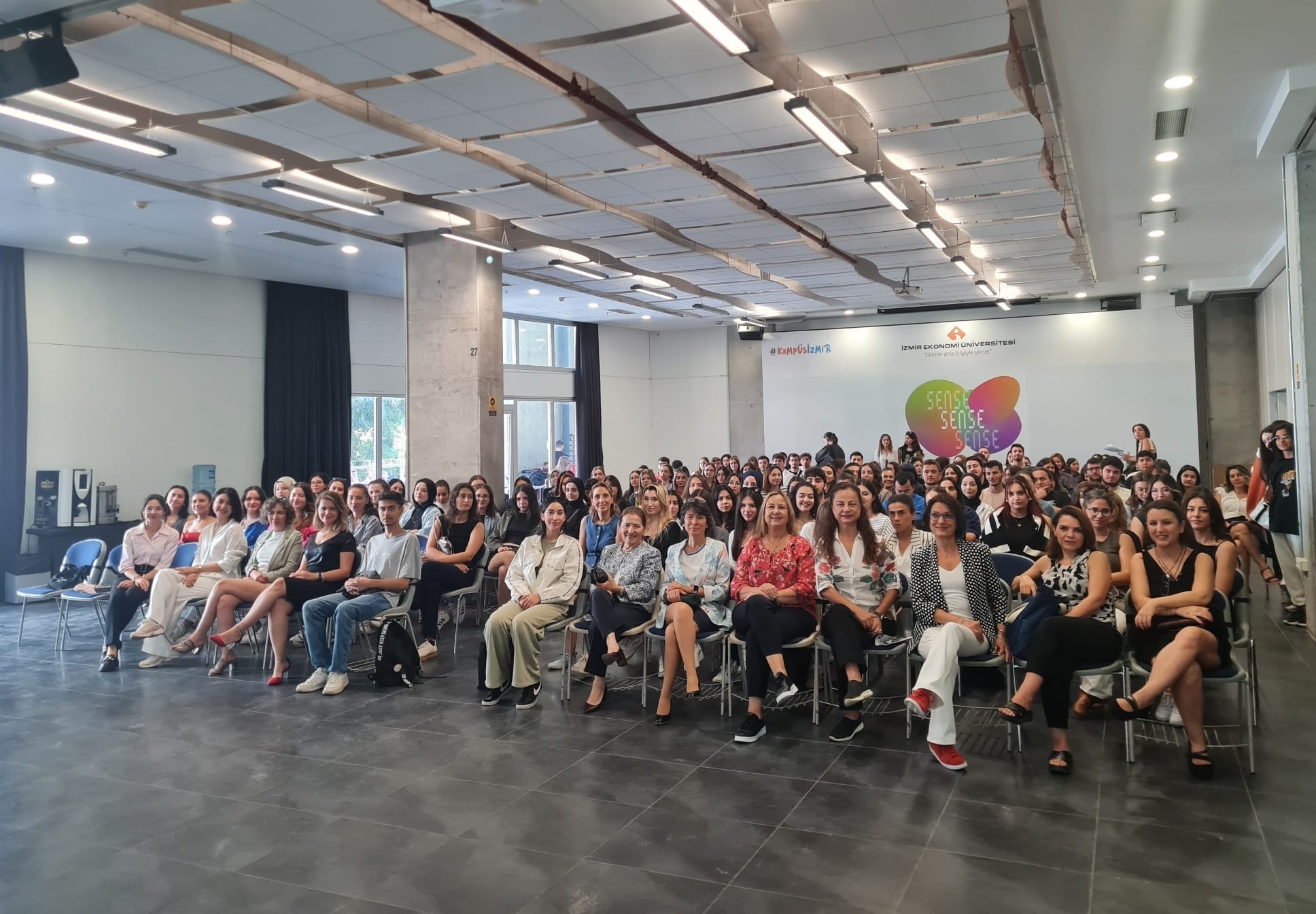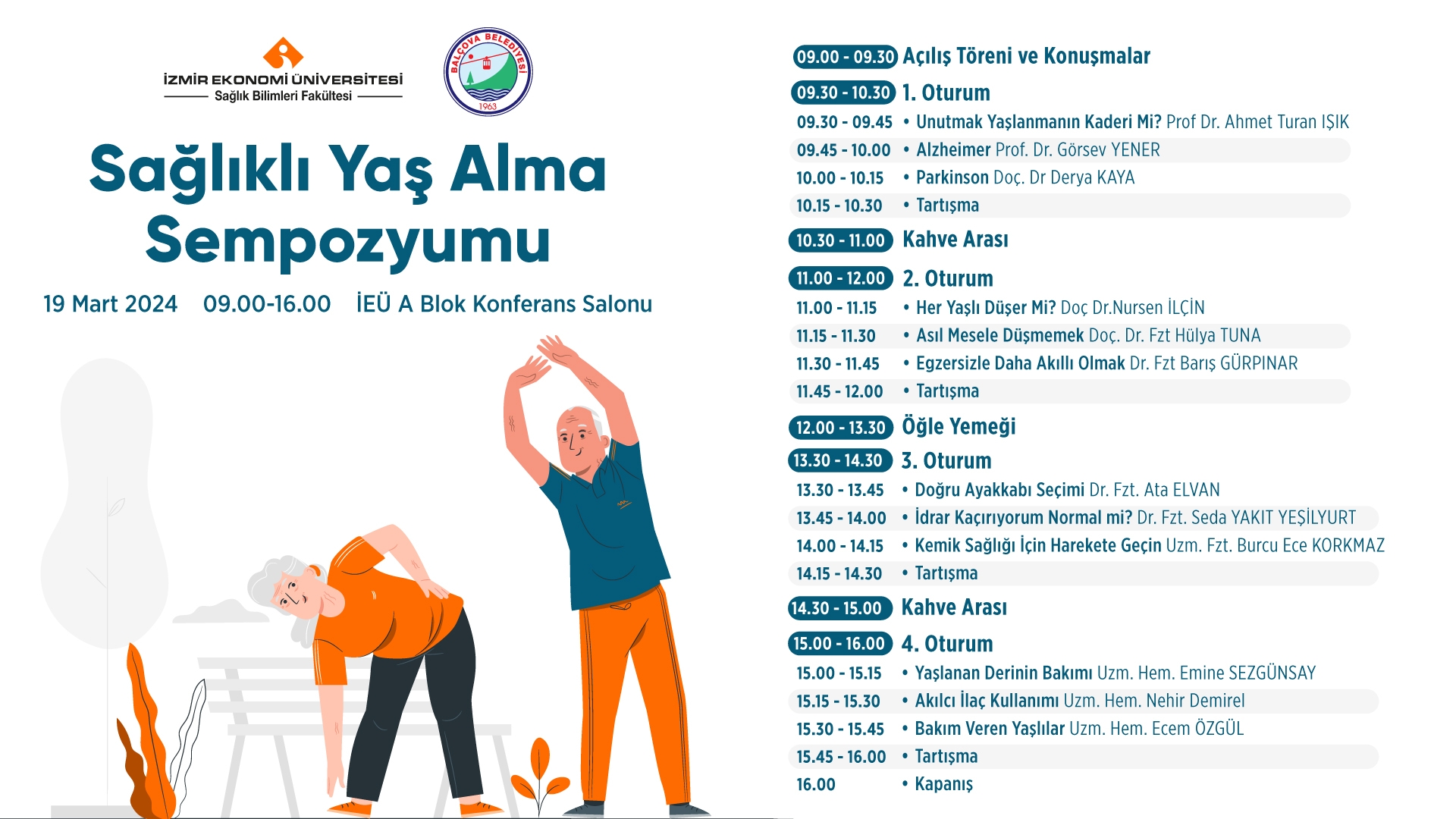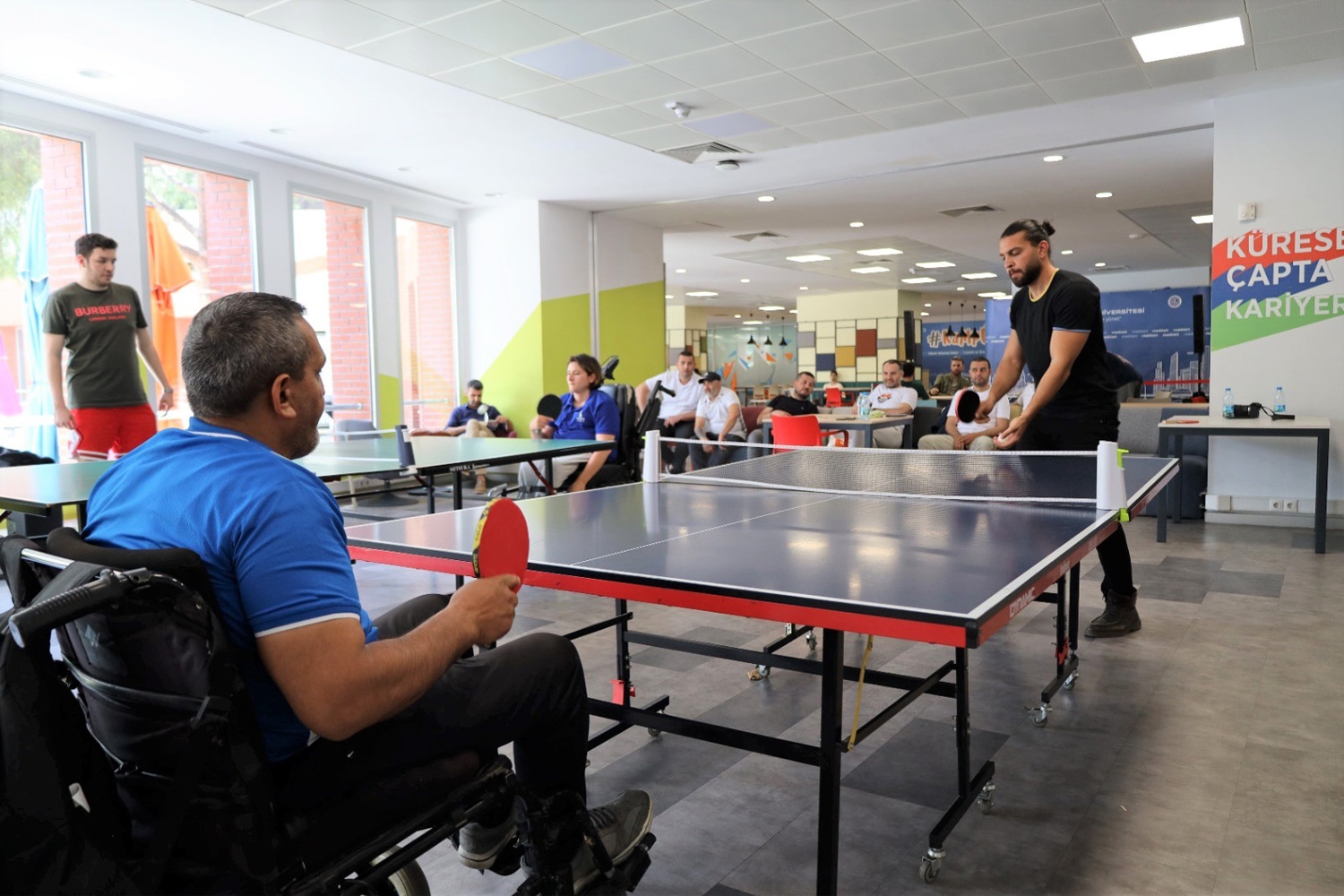
Visit from İzmir University of Economics Faculty of Health Sciences to Balçova Municipality
A visit was carried out by the İzmir University of Economics Faculty of Health Sciences to Balçova Municipality. During the ...

TÜBİTAK 1001 Success
Under the coordination of Asst. Prof. Dr. Barış Gürpınar from İzmir University of Economics, Faculty of Health Sciences, Department of ...

2024-2025 Academic Year Faculty of Health Sciences Opening Lecture
Izmir University of Economics Faculty of Health Sciences 2024-2025 Academic Year Opening Lecture titled "From Mythology to Terminology" was held ...

Healthy Aging Symposium
Moderated by the Department of Physiotherapy and Rehabilitation, Faculty of Health Sciences, Izmir University of Economics, Faculty of Health Sciences, ...

They overcame obstacles with ‘sports’
Izmir University of Economics (IUE) hosted the Wheelchair Table Tennis athletes of the Izmir Metropolitan Municipality at the Table Tennis ...







